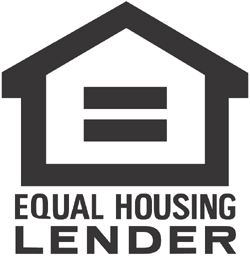Mortgage 101: Tips for First-Time Homebuyers

Buying your first home is an exciting milestone, but it can also feel like a daunting task. From navigating the financial aspects to finding the perfect property, the journey to homeownership requires careful planning and informed decision-making. To help you embark on this significant endeavor with confidence, we’ve compiled a list of the best tips for first-time home buyers. By following these guidelines, you’ll be better prepared to tackle the process and find a home that not only fits your budget but also meets your long-term needs. Let’s explore these essential tips that will pave the way to a successful home buying experience.
Attend a First-Time Homebuyer Seminar
Attending first-time homebuyer seminars can be a valuable step in your journey to homeownership. These seminars provide a wealth of knowledge about the homebuying process, including topics such as budgeting, mortgage options, understanding contracts, and navigating the closing process. These sessions are typically led by industry professionals, including real estate agents, mortgage lenders, and housing counselors, who can offer insight and answer questions.
Seminars often cover important aspects such as down payment assistance programs, tax credits, and other financial incentives that may be available to first-time buyers. By participating in these seminars, you can gain a comprehensive understanding of the homebuying landscape, make informed decisions, and feel more confident throughout the process.
Research Financing Options
When researching mortgage options, it’s important to consider not only loan terms but also the type of mortgage program that suits your needs. Conventional mortgages are one of the most common types. Conventional loans can require as little as 3% for down payment which includes PA Housing Finance Agency (PHFA) loans that are primarily used by first-time homebuyers. However, with a conventional mortgage, you have more flexibility in terms of property types and private mortgage insurance (PMI) may be required if the down payment is less than 20%.
For those with a lower credit score, Federal Housing Administration (FHA) loans can be a viable option. FHA loans are insured by the government and can have more lenient credit requirements, making them accessible to a broader range of borrowers. They typically require a down payment of as low as 3.5% of the purchase price. However, FHA loans do come with an upfront FHA Funding Fee (UFMIP) of 1.75% of your loan amount which can be rolled into your loan and monthly MIP payments, which are added to the monthly mortgage payment.
If you’re looking to purchase a home in a rural area, the United States Department of Agriculture (USDA) loans may be a suitable choice. These loans are designed to promote homeownership in eligible rural and suburban areas. USDA loans offer low to no down payment options and competitive interest rates. However, they have income limitations and property location restrictions, and borrowers must pay upfront and annual guarantee fees.
For eligible veterans, active-duty service members, and surviving spouses, Veterans Association (VA) loans provide excellent benefits. VA loans offer 100% financing, meaning no down payment may be required, and generally have more flexible credit requirements. They also do not require private mortgage insurance. VA loans can be a cost-effective option for those who have served in the military. However, there is a funding fee associated with VA loans, which can be financed into the loan amount.
Know Your Budget
Before embarking on the journey of home buying, it’s crucial to have a comprehensive understanding of your budget. This goes beyond simply knowing the mortgage payment. Take into account other essential expenses such as property taxes, insurance, Home Owner Association dues and maintenance costs. Utilize online calculators or consult with a financial advisor or Loan Officer to determine a realistic price range for your purchase.
Having a clear budget in mind is essential, but it’s equally important to stick to it. It can be tempting to stretch your budget for a home that you love, but remember that being “house poor” can lead to financial stress and hinder your ability to save for other goals. Be realistic about your financial capabilities and prioritize financial stability.
Find a Reputable Lender
One crucial aspect of the home buying process that cannot be overlooked is choosing the right lender. Your lender plays a pivotal role in determining your mortgage terms, interest rates, and overall financial stability throughout the home buying journey. It’s essential to research and select a reputable lender who offers competitive rates, excellent customer service, and flexible loan options. A trusted lender will guide you through the intricacies of the mortgage application, provide clear explanations of the terms and conditions, and ensure that you understand your financial obligations. By carefully selecting the right lender, you can secure a loan that aligns with your needs, budget, and long-term financial goals, setting the foundation for a successful and stress-free home buying experience.
Get Pre-Qualified For a Mortgage
Securing a pre-qualification from a lender is a crucial step in the home buying process. A pre-qualification demonstrates that you are a serious buyer and can give you a competitive edge in a hot market. It also helps you stay within your budget by providing a clear understanding of how much you can borrow. To obtain a pre-prequalification, gather the necessary financial documents and shop around for the best interest rates and terms.
While a pre-qualification is valuable, it’s important to remember that it is not a guarantee of a loan. Keep in mind that changes to your financial situation or credit score can impact the final mortgage approval. Be mindful of your financial activities during the home buying process, such as taking on additional debt or changing jobs, as it can affect your mortgage eligibility.
Work With a Reputable Real Estate Agent
Partnering with a knowledgeable and trustworthy real estate agent can make a significant difference in your home buying experience. Look for an agent with experience in your desired neighborhood and who possesses excellent communication skills and responsiveness. A skilled agent can guide you through the complexities of the process, help you find suitable properties, negotiate offers on your behalf, and provide valuable insight.
However, it’s essential to be proactive and do your own research. While real estate agents have expertise, it’s crucial to stay informed and involved in the decision-making process. Conduct your own market research, attend open houses, and ask questions. By working collaboratively with your agent, you can ensure that your needs and preferences are effectively communicated and addressed.
Don’t Skip The Home Inspection
Purchasing a home without a thorough inspection is a significant risk. Even if a property appears well-maintained on the surface, there could be hidden problems that may incur substantial costs in the future. Investing in a professional home inspection is a prudent step to uncover potential issues with the foundation, plumbing, electrical systems, roofing, and more.
Attending the home inspection allows you to gain a deeper understanding of the property’s condition and identify any areas of concern. Don’t hesitate to ask questions and seek clarification from the inspector regarding their findings. In some cases, it may be necessary to conduct specialized inspections for issues like termite infestation, radon levels, or mold.
Remember, a home inspection report is not meant to be a deal-breaker. It provides valuable information that helps you make an informed decision. If significant issues are identified, you can negotiate repairs with the seller or decide if the property aligns with your risk tolerance and renovation capabilities.
Be Prepared For Closing Costs
In addition to the down payment and mortgage payments, there are other expenses associated with buying a home. These include closing costs, which encompass fees for services such as appraisals, inspections, title search, and insurance. Closing costs typically range from 2% to 5% of the home’s purchase price. It’s essential to budget for these costs and factor them into your overall affordability calculations.
Before closing, review the closing disclosure provided by your lender. This document outlines the details of the transaction, including the final loan terms, interest rate, and closing costs. Take the time to understand each item and ask questions if anything is unclear. Being aware of the closing costs in advance ensures that you’re financially prepared when it’s time to sign the paperwork.
Finance Your First Home With Mid Penn Bank
Following this list of tips before buying a house will help you navigate the homebuying process. At Mid Penn Bank, we offer numerous financing options that will help you purchase your first home. We invite you to browse our mortgage options or get in touch with our mortgage team to discuss your financial situation.

Share:
Disclosures
The material on this site was created for educational purposes. It is not intended to be and should not be treated as legal, tax, investment, accounting, or other professional advice.
Securities and Insurance Products:
NOT A DEPOSIT | NOT FDIC INSURED | NOT BANK GUARANTEED | NOT INSURED BY ANY FEDERAL GOVERNMENT AGENCY | MAY LOSE VALUE
